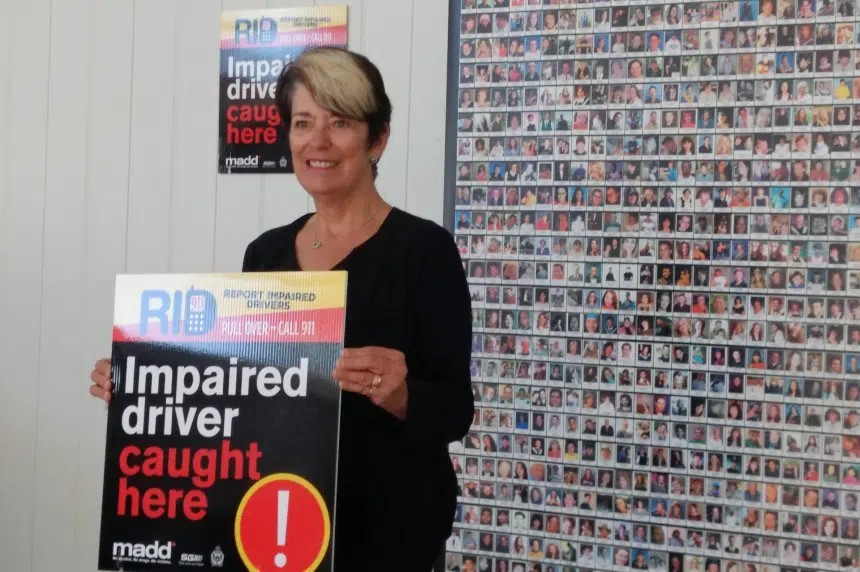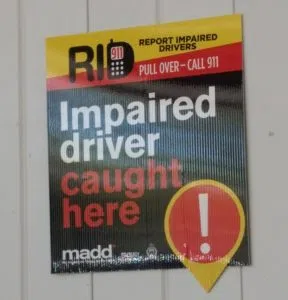Regina residents will start seeing signs that pinpoint the exact locations where impaired drivers have been busted.
It’s part of a joint campaign between MADD Regina, the Regina Police Service and Saskatchewan Government Insurance to encourage the public to pull over and dial 911 if they suspect somebody is impaired and behind the wheel.
“They’ve been caught in residential areas. They’ve been caught on major streets. They’ve been caught everywhere. It’s right in your neighbourhood, there could be one,” Heather Tatham from MADD Regina said during a launch in Regina on Thursday.
Signs will be moved to new locations every two weeks based on where new charges are laid. They’re being erected in Regina and Estevan, with plans to put them up elsewhere.
“Driving impaired is not an accident. There are only crashes with impaired drivers because it’s a choice that those drivers have made to get behind the wheel of a car,” Tatham said.
Some of the signs that somebody is impaired include erratic driving — going too fast or too slow — wide turns and weaving in and out of traffic.
Key details that can help police include the location, direction of the driver, description of the vehicle and the licence plate.
Tatham is familiar with the harm that can be caused by drunk drivers. Her husband Garry was killed by one on Albert Street in 2014.
He has missed out on much, like grandchildren.
“Our life is complete chaos. They’re (aged) four, three, two and one. That’s something he would have loved,” she said.
“I sold his car this week. He had a ’94 Mustang. To let go of that was almost impossible, but I did it.”
It was the fifth impaired driving charge for that motorist, who will soon be released from custody, Tatham said.
According to Regina Police Chief Evan Bray, officers nabbed 368 impaired drivers in 2019. The Report Impaired Drivers (RID) program by SGI took about 500 calls, made anonymously.
Fewer people have been on the roads lately because of the COVID-19 pandemic but that doesn’t mean the streets have been any safer.
“In fact, we’ve actually seen the opposite of it when it comes to traffic enforcement. Speeds have been higher (and) infractions with regard to traffic safety have been higher,” Bray said.
“We’re going through an extremely challenging time. People deal with these challenges in different ways so things like addictions don’t take a break because of COVID.”
Cutting down on the practice of driving while impaired involves communication, education and discouraging the next generation of drivers from doing it, Bray said. He also lauded legislative changes that have given police abilities to better investigate and enforce the law.
Also, sharing the impact it leaves behind can be a deterrent.
“I think it just drives home this issue is ever-present and we all clearly have a role to play in reducing impaired driving,” Bray said.








